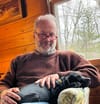Election Notes
I made mistakes over many years. I go back to that meeting with the headmaster as the one where I was, in addition to all else, on the wrong side of history.

My first experience with elections was in fifth grade. I ran for student council president and won. My friend Eddie Kellogg (not using real names here) was so upset about losing that he cried and cried. Eddie really wanted the job. I knew that. He was a popular guy and ran a strong campaign. I believe he had campaign buttons, which means he had plenty of help from someone at home. But he was so distraught that our homeroom teacher sent us down the hall to the principal’s office. I felt bad. He was crying. The Principal was trying to resolve the situation and probably thinking, who thought it would be a good idea to have ten-year-olds form a student government? Consistent with that question, I resigned and conferred the presidency on Eddie, who stopped crying. This was, of course, a straight-up disenfranchisement of the voters, but the Principal embraced the bargain with a pat on the head and ushered us back to the classroom.
I ran for student government again in middle school, in grade seven. I made posters with a big, beautiful star that I painstakingly drew using a ruler and yellow marker. I distributed them throughout the building, attaching them with masking tape to the cream-colored cinderblock walls. I do not remember my slogan, but later in the day, someone said, “I didn’t know you were Jewish.” Evidently, I had chosen the Star of David as my symbol. I lost anyway to David Stepan, whom I maintain won because he was the only seventh grader with a girlfriend.
Samantha “Sam” Gibson set the finest example of politicking I saw in those days. It may have been the year after my hand-off to Eddie. Sam was a very cute sixth grader. That might have done it for her, but she had more to offer. The school organized an assembly in the cafeteria one afternoon for candidate presentations. We sat cross-legged on the floor, grades four through six, with the teachers arrayed around the room on plastic chairs. The contenders took turns stepping onto the wooden roll-out stage to make their pitch. The only memorable address—it has lasted a lifetime—was Sam’s. Others may have promised more recess, more ice cream, more snow days. Who knows? What is there to run on when you are ten, paraded everywhere in a single file, without any discretion over budgets? Sam strode to the stage, alluring as always. She asked everyone to stand. We did, teachers included. Sam took her time looking around the room with a smile while we fidgeted in place. A few giggles poked through the suspense. Finally, she said, “Thank you. Please sit down.” We did. Sam said, “As I’ve just demonstrated, people will respond to my leadership.”
Sam won in a landslide.
I relocated to Canada for high school, where I lived under an autocracy, the old British schoolboy system of masters, new boys, old boys and prefects. And corporal punishment, including strikes with a slipper for being out of bed after lights and straps across the wrist for more egregious offenses such as leaving campus off hours and without permission, stealing, smoking, and other ruinous conduct.
Honestly, we had great fun. Along the way, the school brought in a capable headmaster (British, by the way) tasked with dragging the institution into the twentieth century. I joined other senior fellows opposing the move (there were no women yet, although that was planned for the next year). We brought a signed petition to a meeting with the Head to document the student body’s preference for the status quo—the old ways, the ways we knew, the ways of our traditions, the ways incorporate in our fight songs and chapel hymns.
I made many mistakes over many years. I go back to that meeting with the headmaster as the one where I was, in addition to all else, on the wrong side of history. It left its mark. The school flourishes today as a multi-cultural, internationally recognized place of learning.
Where is Sam Gibson today? She might be in Congress, for all I know. It would do to have her leadership skills at work there, getting people to stand up and sit down, when required.
Where is Eddie? I hope his passion for serving in government has not diminished. Maybe he has worked on a Schoolboard or Select Committee. I would be surprised to see him pop up on a list of Presidential candidates at this point, but if elected, it would be great to get a note from him on White House stationary, “Thanks for giving me my start in fifth grade.”
I do not know what happened to David, but I used to see his parents when I moved back as an adult to the town where we grew up. His mother was one of the first women ordained in the Episcopal church, which was probably controversial then, but I had no idea. She had done so many things around the church over the years that becoming a priest seemed the obvious next step.
The headmaster who rejected our petition and spearheaded change at my high school died several years ago. We kept in touch through alum functions. Before he died he co-wrote a volume on the one-hundred-plus year history of the school. He would say that knowing history is a good way to stay on the right side of it.
I have one of his business cards that reads simply, Teacher.

